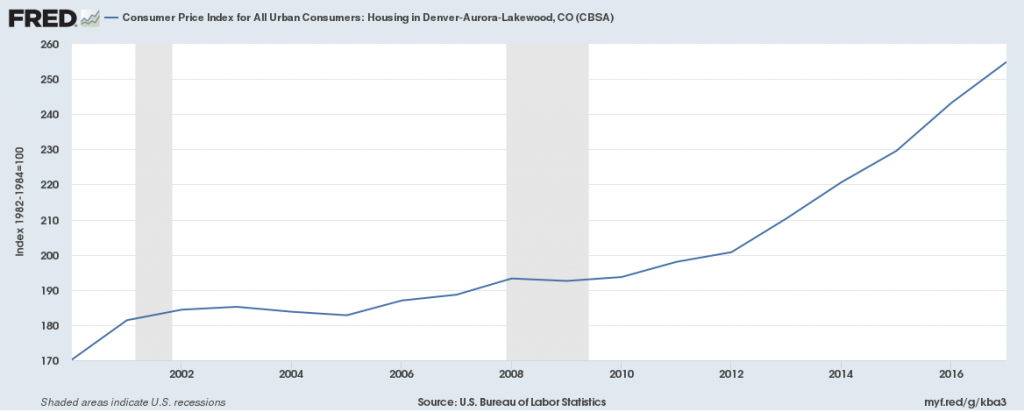Gross Domestic Product
Real GDP (a measure of economic growth) increased from 2001-2008 and resumed growth from 2009-2017, going from $247 billion in 2009 to $300 billion in 2017.
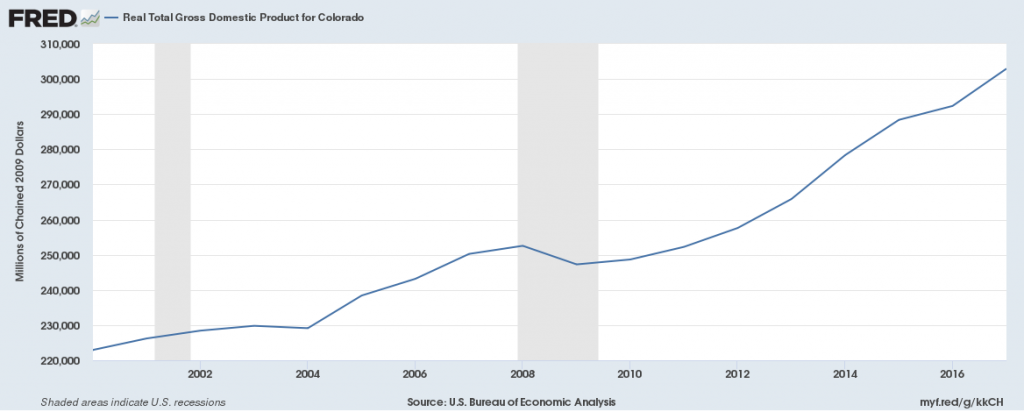
Jobs
Private-sector employers have added 450,000 jobs since 2010, the national low point for private-sector employment. From 2017 to 2018 the private sector added 75,000 new jobs. There were 2,275,000 total jobs in the private sector in 2017, above pre-recession levels of 1,970,000. Average hourly wages in the private sector grew from 2012-2018, going from $24/hr to $29/hr.
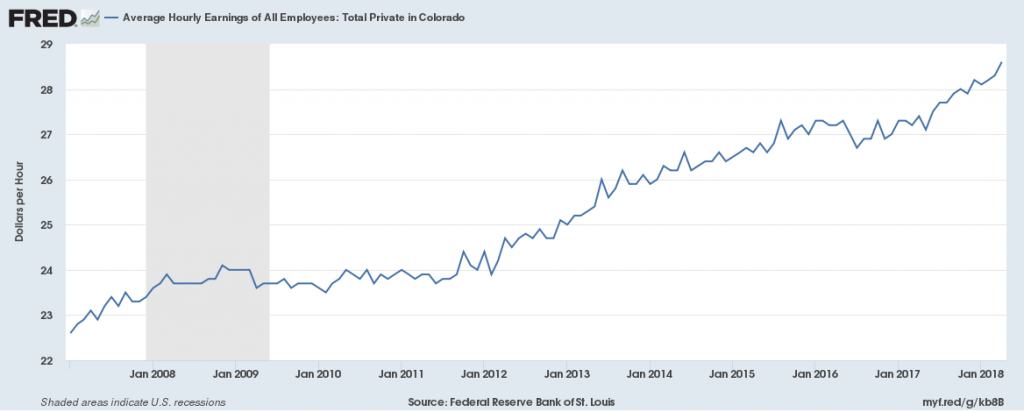
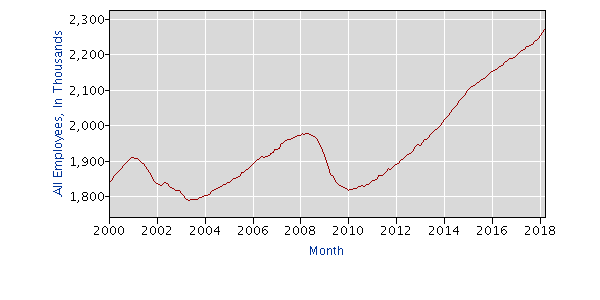
Manufacturing employment decreased since 2001, especially during the recession, but has recovered to 2008 levels by 2018. There were 145,000 jobs in this sector in 2018, down from 190,000 in 2000 but at pre-recession levels. Average hourly wages of manufacturing employees have increased since 2000, going from $14/hr in 2000 to $21/hr in 2018.
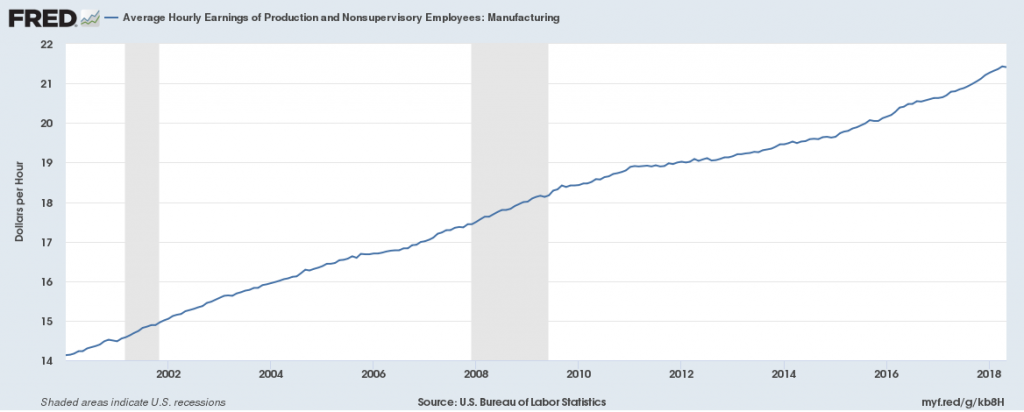
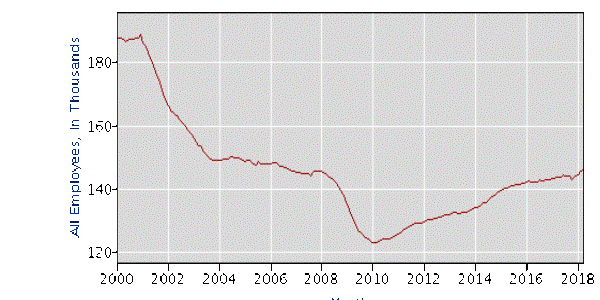
There were 87,500 jobs in the Transportation, Warehousing and Utilities sector in 2018, above pre-recession levels by 8,000 jobs, showing growth in this sector. The average wage in Transportation, Warehousing and Utilities occupations grew from 2011-2013 and has hovered there since then at $23/hr.
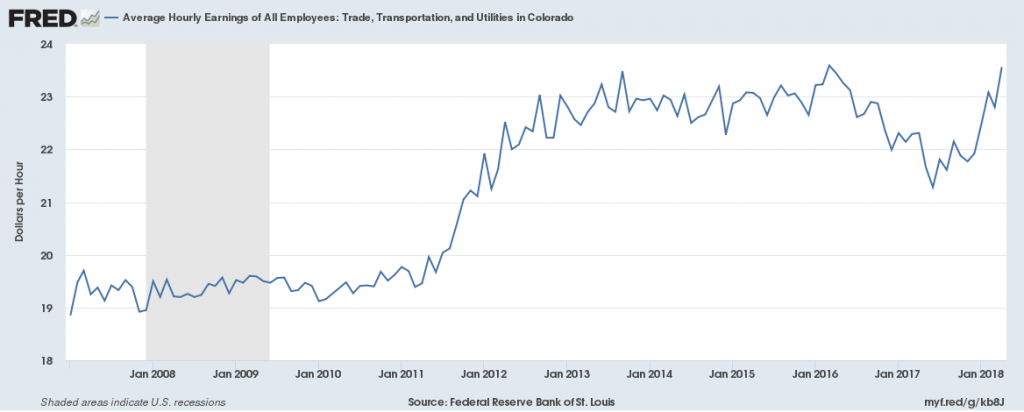
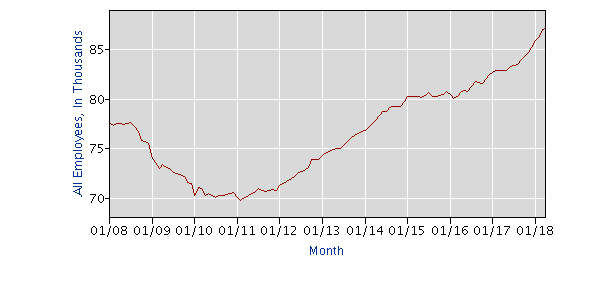
Unemployment
The unemployment rate in 2018 is 3%, up from the prior year’s 2.6% rate. This is below the national average of 3.9% unemployment.
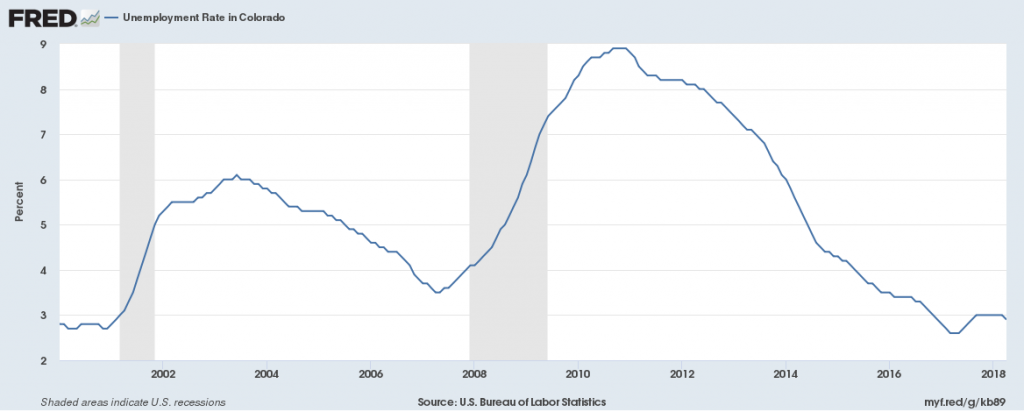
Housing
The House Price Index, a measure of the cost of housing, declined during the recession but now significantly exceeds the pre-recession high, going from 360 in 2008 to 550 in 2018.
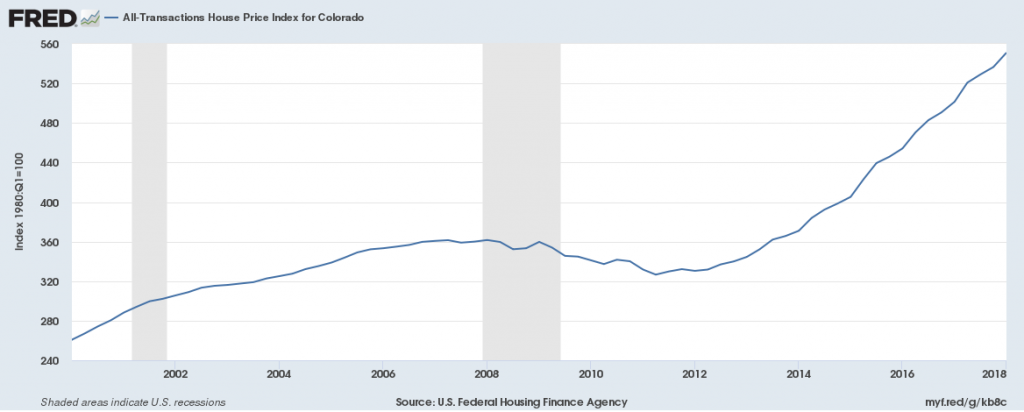
Denver-Aurora-Lakewood
Gross Domestic Product
Real GDP (a measure of economic growth) increased from 2001-2008 and resumed growth from 2009-2017, going from $149 billion in 2009 to $180 billion in 2017.
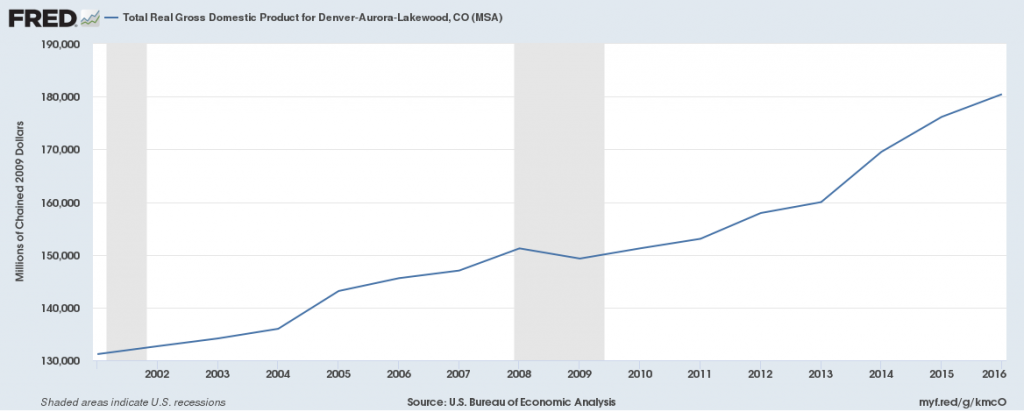
Jobs
Private-sector employers have added 90,000 jobs since 2010, the national low point for private-sector employment. From 2017 to 2018 the private sector added 12,000 new jobs. There were 437,000 total jobs in the private sector in 2017, above pre-recession levels of 380,000. Average hourly wages in the private sector grew from 2008-2017, going from $25/hr to $29/hr.
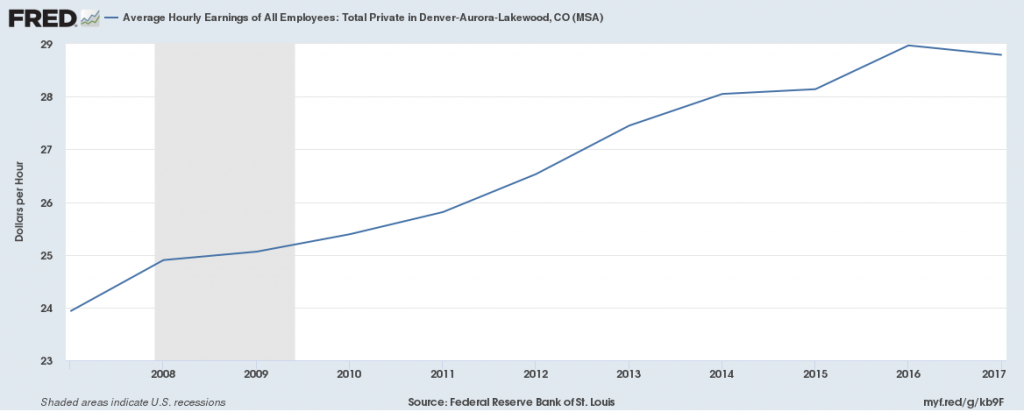
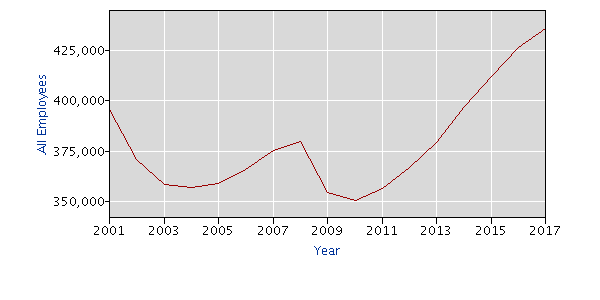
Manufacturing employment decreased since 2001, especially during the recession, but has almost recovered to 2008 levels by 2018. There were 21,000 jobs in this sector in 2018, down from 28,000 in 2000 but only slightly below 22,500 levels of 2008. Average hourly wages of manufacturing employees have increased since 2007, going from $17.50/hr in 2000 to $32.50/hr in 2018.
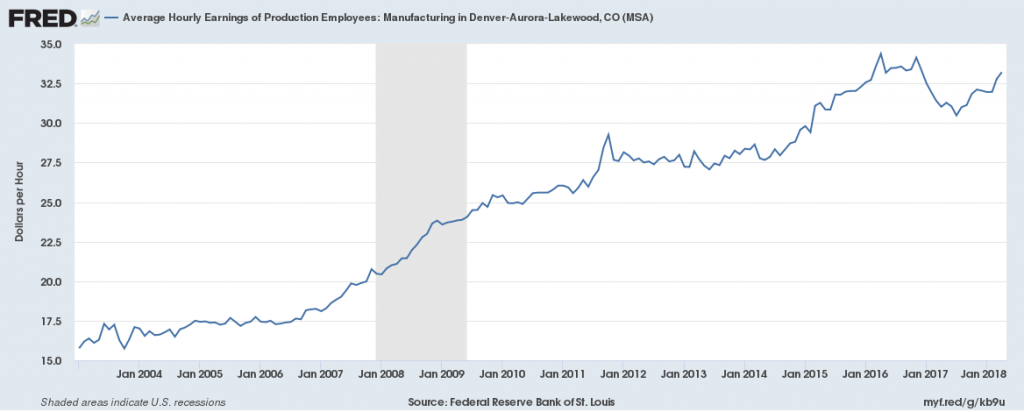
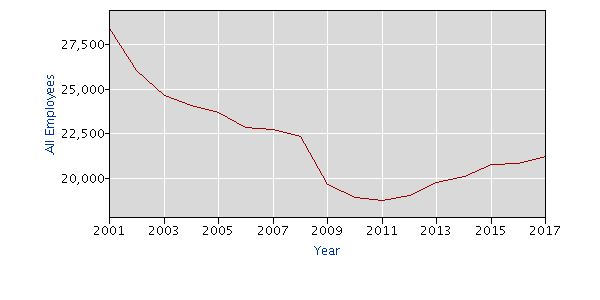
There were 27,000 jobs in the Transportation, Warehousing and Utilities sector in 2017, above pre-recession levels by 2,500 jobs, showing mild growth in this sector. The average wage in Transportation and Material Moving occupations was $21.02/hr in 2018.
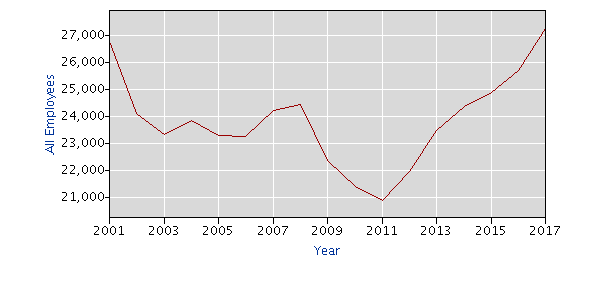
Unemployment
The unemployment rate in 2018 is 2.5%, the same as in 2017. This is below the national average of 3.9% unemployment.
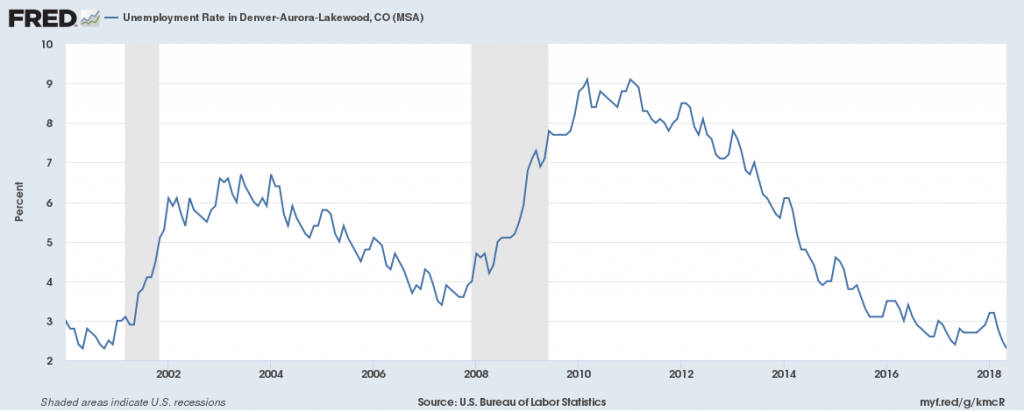
Housing
The Consumer Price Index has been increasing steadily, showing an increase in the general cost of living since 2008, going from 195 to 255 in 2017.
